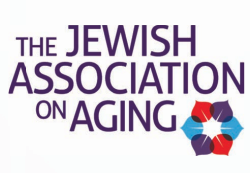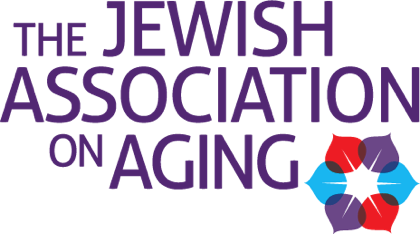Educating the Family about Alzheimer’s Disease
When a family member is diagnosed with a life-altering disease such as Alzheimer’s, you may not know what comes next or where to turn. Especially if you will be serving as the primary caregiver, you may want to only educate yourself as you might think that you will be able to handle it on your own. In reality, Alzheimer’s is a family diagnosis. It does not just alter the life of your loved one who was diagnosed and yourself as a caregiver, it affects anyone and everyone who may come into contact with your loved one. To be best-equipped to face the challenges that Alzheimer’s and other forms of memory loss will bring with it, building a strong support system is essential. Many times this foundation begins with educating the family and making sure that they are aware of the changes, trials, and hardships to come.
According to Amy Dukes, Memory Care Liaison at AHAVA Memory Care Residence, a Memory Care Center of Excellence in Pittsburgh, PA, one of the biggest mistakes made when it comes to an Alzheimer’s disease diagnosis is that it is kept a secret. “It can be embarrassing or hard to let friends and family members know that you or a loved one have been diagnosed with Alzheimer’s disease or another form of memory loss,” says Amy. “It can be difficult to bring up as you may not know where to start or what to tell them, especially if you are still grasping the reality of it, yourself. Many times, whether you are the caregiver or the one diagnosed with Alzheimer’s, family and friends look to you for education and explanation on what comes next, as they want to be there for you and your loved one as much as possible.”
“When it comes time to talk to family members and friends about Alzheimer’s disease, you may believe that sparing them details will help them. The opposite is actually true. It’s important to be honest with friends and family so that they have an accurate idea of what is going on and how things are going to change as the disease progresses. Once they know about Alzheimer’s disease, they can begin to educate themselves in order to be able to help you care for your loved one and better understand what they can do to help, essentially building a much-needed support system.”
How to Educate Family about Alzheimer’s Disease
Because educating those closest to your loved one about Alzheimer’s disease is important, we have broken down a few tips in order to help you better understand the disease and provide the highest level of care for your loved one.
- Talk about what you are learning. Teaching your family caregiving skills cannot only benefit you and your loved one, but it can help them to maintain a positive relationship with their loved one. As Alzheimer’s disease progresses, many family members may not know what to do to help you and may have no idea how to connect with their loved one. Anything that you learn that is beneficial to you, will likely be beneficial to them, as well. Try making your family resource packets or send out helpful resources as you receive them.
- Do not forget to talk to the children. Younger children will have a more difficult time understanding what is going on, and it may be harder to convey what Alzheimer’s disease will do to their loved one. Because of this, the National Institute of Health provides resources to help you explain memory loss to the children in the family. Try some of their suggestions, such as reading a relevant book about Alzheimer’s disease or watching an educational film made for children.
- Teach family members how to communicate. When communicating with a loved one with Alzheimer’s disease, family members will likely need to remind them of who they are. Family members should always speak slowly, make eye contact and speak as clearly as possible. Teach your loved one that they should avoid correcting or arguing with your loved one, and tell them what your loved one likes to talk about.
- Encourage positive mindsets. The changes that are occurring in your loved one are confusing, upsetting, and frustrating for you, but it is just the same for them. Any emotions that you are giving off, your loved one can easily pick up and it can cause them to become even more agitated. Be sure to tell your loved ones that any stress they are carrying with them can transfer to your loved one and encourage them, if only for a little while, to have the most positive mindset and pleasant attitude that they can.
- Bring everyone closer together. Although your loved one may have Alzheimer’s disease, it doesn’t mean that they don’t still find joy in things they used to. Encourage your family to watch movies or listen to music your loved one enjoys. Try going through old photo albums. This can help bring everyone together and create a connection that can brighten up your loved one’s day.
Above all, please ask for help if it is needed. During this journey through Alzheimer’s disease, it is important to realize you are not alone and there are various resources available to help you and your family through this time. If you and your family prefer to map out the tasks that need completed when it comes to your loved one’s care, try using the Alzheimer’s Association’s® Alzheimer’s Care Team Calendar tool.
Safe, Secure and Designed for Living
When it becomes harder to provide the level of care your loved one deserves, along with the lifestyle they desire, turn to AHAVA Memory Care Residence. As one of the few Hearthstone-Certified Memory Care Centers of Excellence, we know exactly how to care for those with Alzheimer’s disease or other forms of dementia. From our groundbreaking non-pharmacological approach and our comforting environment to our development of personalized programs and activities tailored to your loved one’s specific needs, we care for your family as though they are our family. Our high level of care, along with our underlying foundation of love, ensures that at AHAVA, your loved one will receive the very best care and you and your family will benefit from the peace-of-mind of our never-ending guidance and support.
To talk to our experienced memory care specialists about our proven approach to memory care, call us at 412.521.8295 or visit us today.
AHAVA Memory Care Residence . . . For the Love of Seniors
The Jewish Association on Aging’s new AHAVA Memory Care Residence is the only Memory Care Center of Excellence in Pennsylvania certified by The Hearthstone Institute. At AHAVA, we provide the proven approach of Hearthstone’s life-enriching I’m Still Here® programming within a warm and comfortable atmosphere. With the Hearthstone approach, the expertise of our caregivers, the support of our community, and a purposeful design for those with memory loss, AHAVA Memory Care Residence is Pittsburgh’s premier resource for Alzheimer’s and dementia care.
The choice to partner with The Hearthstone Institute came from the desire to provide truly unique and specialized memory care programming to our residents. As a recognized leader in the field of Alzheimer’s care and founder of The Hearthstone Institute, Dr. John Zeisel’s philosophy and approach deeply aligns with ours – to create nurturing environments where those living with Alzheimer’s disease and other forms of memory loss can flourish. We have created an atmosphere of hope for our residents and their families – a place where everyone cares for, respects, and loves one another.
Built with purpose and love, and designed for living, AHAVA Memory Care Residence is more than just a place to be cared for – it’s a place to experience joy. Our personalized memory care program, delivered within a licensed assisted living community, provides the dignified assistance that’s needed, along with the lifestyle, services, and amenities that are desired.
Please contact us today or call us at 412.521.8295 for more information or to arrange a personal tour.

